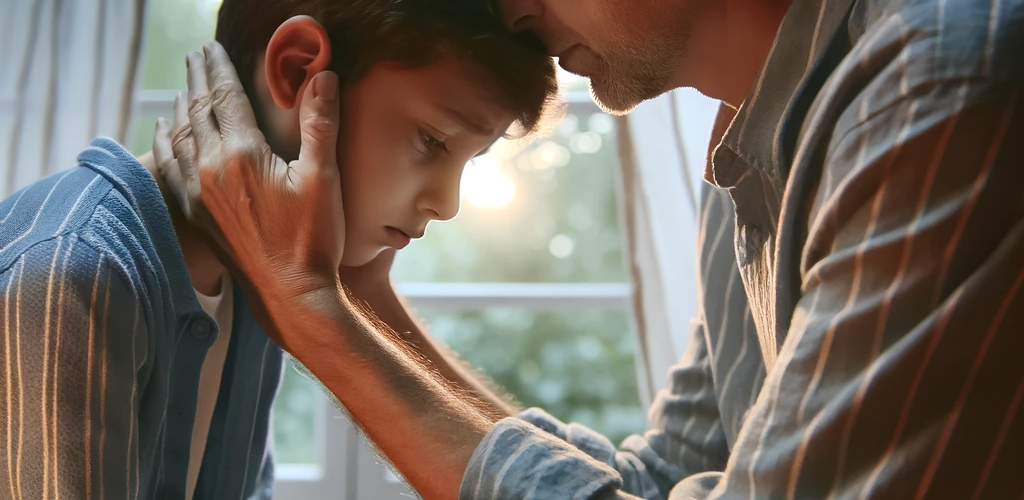Autistic Children May Be at Greater Risk of Suicide: Understanding and Prevention

TL;DR – Suicide Risk in Autistic Children
- Autistic children may face higher suicide risks due to social isolation, anxiety, and communication challenges.
- Early signs include withdrawal, depression, and talking about death.
- Prevention includes therapy, family support, and school intervention.
- Professional help is crucial if any signs appear.
Autism Spectrum Disorder (ASD) and Suicide Risk
Autism spectrum disorder (ASD) is a developmental disability affecting communication, interaction, and behavior. Recent research shows that autistic children and teens have a higher risk for suicidal thoughts and behaviors. This is in comparison to their non-autistic peers. For parents, this news is alarming. Awareness of the warning signs and risk factors is crucial in protecting your child.
Why Are Autistic Individuals at Increased Risk?
Several factors contribute to the heightened suicide risk in autistic individuals:
- Difficulty Regulating Emotions: Many autistic children struggle to identify, express, and manage emotions, especially during stressful times. Overwhelming emotions can lead to distress.
- Social Isolation: Challenges in making friends and fitting in can lead to feelings of loneliness, adversely affecting mental health.
- Bullying: Autistic mannerisms and social interaction difficulties often result in bullying, increasing the risk of suicide.
- Sensory Issues: Sensitivity to sensory stimuli, a common trait in ASD, can cause extreme discomfort.
- Rigid Thinking: An “all or nothing” perspective prevalent in autistic individuals makes it difficult to see solutions.
- Co-occurring Conditions: Conditions like anxiety, depression, and ADHD, more common in autistic individuals, also elevate suicide risk.
Warning Signs of Suicide Risk
Be vigilant for these signs that your autistic child might be grappling with suicidal thoughts:
- Expressions of wanting to die, feeling hopeless, or being a burden.
- A preoccupation with death.
- Increased sadness, tearfulness, or emotional outbursts.
- Changes in sleep patterns and appetite.
- Social withdrawal or lost interest in activities.
- Risky behaviors or recklessness.
- Saying goodbye or giving away possessions.
Immediate action is crucial upon noticing potential self-harm signs. Contact a healthcare professional or call national hotlines like 1-800-273-TALK for support.
Reducing Suicide Risk
Suicide is preventable. Here are strategies to lower the risk for your autistic child:
- Offer support during transitions and stressful times.
- Teach coping strategies for managing emotions and anxiety.
- Encourage social connections with understanding peers.
- Promote feelings of acceptance and inclusion.
- Address bullying swiftly and effectively.
- Collaborate with your child’s IEP team to meet sensory needs.
- Seek assessment for signs of depression.
- Secure prescription medications and limit access to potential self-harm tools.
- Remain alert to suicide warning signs and statements.
Frequently Asked Questions
Are autistic children more likely to experience suicidal thoughts?
Yes, research indicates that autistic children and adolescents face a higher risk of suicidal thoughts and behaviors compared to neurotypical peers. This is often linked to social isolation, communication difficulties, and co-occurring conditions like anxiety or depression.
What are the warning signs of suicide in autistic children?
Watch for behavioral changes such as sudden withdrawal from activities, expressions about wanting to die, increased self-harming behavior, or extreme mood swings. These signs may manifest differently in autistic individuals, so familiarity with your child’s baseline behavior is critical.
How can I help prevent suicide in my autistic child?
Start by creating an emotionally safe environment. Regularly talk with your child about emotions, monitor their mental health, and seek guidance from therapists familiar with autism. Involve schools, support networks, and crisis professionals when needed.
Where can I get help if my child is in crisis?
Contact the 988 Suicide & Crisis Lifeline or consult your pediatrician, psychologist, or local mental health services. Immediate support can be lifesaving.
The threat of suicide is daunting for any parent. However, proactive steps and timely help can safeguard autistic children from this preventable tragedy. We can make a meaningful difference through support, understanding, and compassion.
Discover more from Living with Autism
Subscribe to get the latest posts sent to your email.

